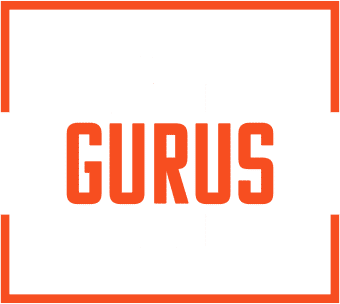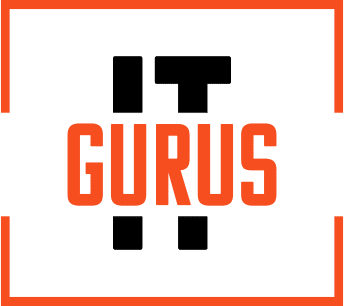Health insurers and other businesses that work within the healthcare industry regularly come into contact with sensitive data pertaining to people’s health—protected health information (PHI).
Unprotected patient data can be stolen and used to exploit your healthcare institution and its patients. This can result in a blow to your organization’s reputation, distress for the victims, and fines.
The Health Care Accountability and Portability Act (HIPAA)—a law monitored by the Department of Health and Human Services (HHS) along with the Office for Civil Rights (OCR)—aims to protect PHI by setting guidelines for its use by HIPAA-covered entities and their business associates.
If these measures are not followed, violations, such as the following 7, can occur.
1. Misplacing (losing) work devices
Mobile devices serve various purposes for their users, and for employees working in the healthcare industry, they are a tool that offers them convenience and more productive processes. Mobile devices can be used to access medical records, contact clients, and schedule appointments, among many other tasks.
While this makes them exceptionally convenient for the modern medical industry, it also makes them a target. If your company’s devices store PHI, and you lose them, that will be classified as a HIPAA violation, resulting in you having to pay fines.
2. Inadequate security training
An aspect of remaining HIPAA-compliant is to educate your team members on the importance of cybersecurity and how to exercise HIPAA regulations within your company operations. Organizations that do not invest in high-quality employee training are more likely to succumb to other HIPAA violations and cyber threats.
3. Leveraging technologies that do not conform with HIPAA compliance
According to HIPAA’s Security Rule, healthcare organizations are obligated to deploy “administrative, technical, and physical safeguards for protecting e-PHI”. In other words, you must only use technological solutions that deploy innovative cybersecurity measures to protect data and patient information within the workplace and while it is in transit.
Failing to use these sorts of tools (for example, a specific software application) can constitute a HIPAA violation because the solution does not meet HIPAA’s criteria for effective PHI management.
4. Unauthorized access to sensitive information
One of the more common HIPAA violations, unauthorized access involves an entity breaching protocols to access information within your network. Unauthorized access often occurs in several ways—the use of stolen credentials, the installation of malicious software, losing an unprotected work device, and more.
In the eyes of the OCR, data privacy is foundational to HIPAA compliance. Regardless of one’s intention for accessing the information, only authorized personnel should be privy to the data.
5. Defying the Breach Notification Rule
Simply put, the Breach Notification Rule is a HIPAA requirement that specifies that HIPAA-covered entities and their corresponding business associates must report all security breach incidents. Generally speaking, the timeframe for issuing a report is 60 days, though the specific time you are required to make the notification to the HHS depends on the violation’s number of victims. Not reporting violations on time is a common occurrence.
6. Exposing PHI to unauthorized parties
Data privacy is important for healthcare organizations, as the information they have can be used to exploit patients. This HIPAA violation relates to the Privacy Rule—the part of HIPAA that deals with the protection of patient information and its disclosure.
Outside of data breaches, PHI can be exposed to unauthorized personnel in several ways. This includes:
- Passing along incorrect information.
- Conducting classified conversations in public settings, within earshot of others.
- Mishandling PHI.
- Disclosing PHI after the patient has revoked their permission.
- Data leaks after sensitive devices were lost or stolen.
- Disclosing PHI without considering the minimum necessary rule.
7. Incorrectly disposing of PHI
Once the PHI of a patient is not needed or the period where it must be kept within your network has passed, HIPAA-covered entities must destroy the record permanently. This can be done through the shredding of paper records and the permanent deletion of digital information. Any device that contains PHI should also be destroyed to ensure that its data cannot be retrieved by others and used for malicious purposes.
How managed cybersecurity services can help HIPAA-covered entities remain compliant
HIPAA provides guidelines for the ethical use of patient health information, imposing penalties on those who don’t comply. However, there is quite a bit of material surrounding HIPAA, and your priorities should always revolve around your patients.
Managed security services from technology companies experienced in HIPAA can help you remain compliant with the law and ensure that your patients’ information is kept safe. Cybersecurity service providers that fit this description can help you enhance your organization’s cybersecurity posture (alongside its HIPAA-compliant status) by:
- Conducting risk assessments.
- Developing cybersecurity strategies.
- Monitoring your network for suspicious activity.
- Advising employees on cybersecurity and HIPAA best practices.
- Helping you develop compliance policies.
Protect your business’s reputation with HIPAA security services
HIPAA should never be mistaken for a burden you and your team have to deal with. It’s a law that aims to protect your patients’ privacy/health information and, by extension, your company’s reputation. By remaining HIPAA compliant, your business can avoid enacting unlawful procedures or falling victim to circumstances that could lead to the loss of sensitive data.
The HIPAA security services at IT Gurus can help you avoid these risks with the support of a team of HIPAA experts skilled in fully managed cybersecurity services. Talk to the team today to implement a HIPAA-compliant security strategy that will ensure your business remains operational and stands firmly within the grounds of the law.


